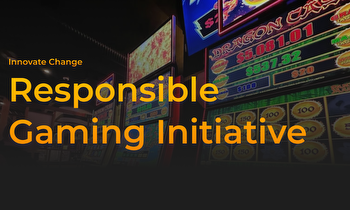Responsible Gambling Initiatives in the European Casino Industry: Promoting Safer Gaming
The European casino industry has proactively embraced Responsible Gambling Initiatives to promote safer gaming. These initiatives educate and raise awareness among players about the potential risks associated with wagering while encouraging responsible behavior.
To help players manage their gambling habits, the industry has implemented self-exclusion programs, age verification checks and responsible gaming tools. What's more, casinos have formed partnerships with organizations to offer support and resources for individuals facing addiction.
By taking these measures, the European casino industry is paving the way for a safer and more responsible gaming environment for all players.
Understanding Responsible Gambling
Engaging in gambling responsibly means participating in betting activities in a manner that is conscientious, controlled, and devoid of adverse effects on a person's life. This entails recognizing the risks tied to gambling and taking measures to ensure that it stays a leisure activity rather than a detrimental habit.
A crucial element of responsible gambling is imposing limits. This encompasses establishing a financial limit for wagering activities and adhering to it diligently. It's vital to gamble solely with funds that one can afford to lose. Moreover, one must avoid attempting to recover losses by escalating bets or exceeding the predetermined budget.
It's equally important to recognize the indicators of problem gambling and to seek assistance if necessary. Compulsive gambling can inflict severe repercussions on an individual's mental well-being, interpersonal relationships, and economic stability. Recognizing when betting is spiraling into an issue and seeking support from resources such as helplines or therapy services is crucial.
Practicing responsible gambling also means having a clear understanding of the odds and chances linked with various games. Approaching gambling with a pragmatic mindset is essential, acknowledging that outcomes are determined by luck rather than expertise, thereby avoiding unfounded expectations and substantial financial setbacks. Finally, responsible betting includes taking periodic breaks and ensuring it doesn't monopolize all facets of one's life. Striking a healthy equilibrium between gambling and other pursuits, such as professional commitments, family time, and hobbies, is paramount.
The Importance of Responsible Gambling Initiatives
Every country has different initiatives regarding responsible gambling. As an example, the UK has GamStop, which is a free tool that allows players to exclude themselves from gambling sites licensed in the UK. Naturally, the tool is not without its own disadvantages, as it may limit a player's options, freedom as well as flexibility around their gambling preferences. Sites featured on https://non-gamstop-casinos.com/gb/slots-not-on-gamstop/, for instance, offer generous bonuses and payment methods like cryptocurrency, which are seldom featured on GamStop-registered sites.
Regardless, the initiative, like all other responsible gambling initiatives, is well-intentioned and crucial for multiple reasons. Firstly, they safeguard vulnerable individuals from the potential harms of excessive betting. By encouraging responsible behavior, casinos ensure that players are fully aware of the risks and can make well-informed decisions regarding their wagering activities.
Moreover, these initiatives play a vital role in upholding the integrity of the casino industry. Through implementing preventive measures against problem wagering, casinos demonstrate their unwavering commitment to ethical practices and responsible business operations. Consequently, this fosters trust among players and the broader community.
Responsible gambling initiatives significantly contribute to the overall sustainability of the industry. By addressing problems and promoting responsible behavior, casinos actively work towards reducing the social and economic costs associated with gambling-related issues. This not only benefits the industry itself but also society as a whole.
Legislation and Regulations in the European Casino Industry
Across Europe, the casino industry operates under a comprehensive set of laws and regulations to promote responsible gambling. While each country has its own unique rules, there are overarching principles that guide the industry as a whole.
One crucial aspect of this framework is age restrictions. Casinos must ensure that only individuals above a certain age are allowed to gamble which will prevent underage betting and protect young people from the potential risks associated with it.
Moreover, casinos are obligated to provide information about responsible gambling and support services. This includes prominently displaying helpline numbers, offering self-exclusion programs and granting access to resources for those seeking assistance with betting-related issues. By prioritizing responsible wagering practices, the European casino industry is actively working towards creating a safe and enjoyable environment for all players.
Another significant facet of the regulations is the requirement for casinos to implement measures that combat money laundering and fraud. This involves conducting thorough background checks on customers, monitoring transactions for suspicious activity and promptly reporting any questionable transactions to the appropriate authorities. By doing so, the industry aims to uphold the integrity of the casino sector and prevent criminal activities from infiltrating casinos.
Furthermore, the European casino industry is subject to strict regulations regarding fair play and cheating prevention. Casinos are mandated to use certified and audited gaming equipment, ensuring that game outcomes are entirely random and not manipulated in any way. This fosters trust among players and guarantees that everyone has a fair chance of winning.


































